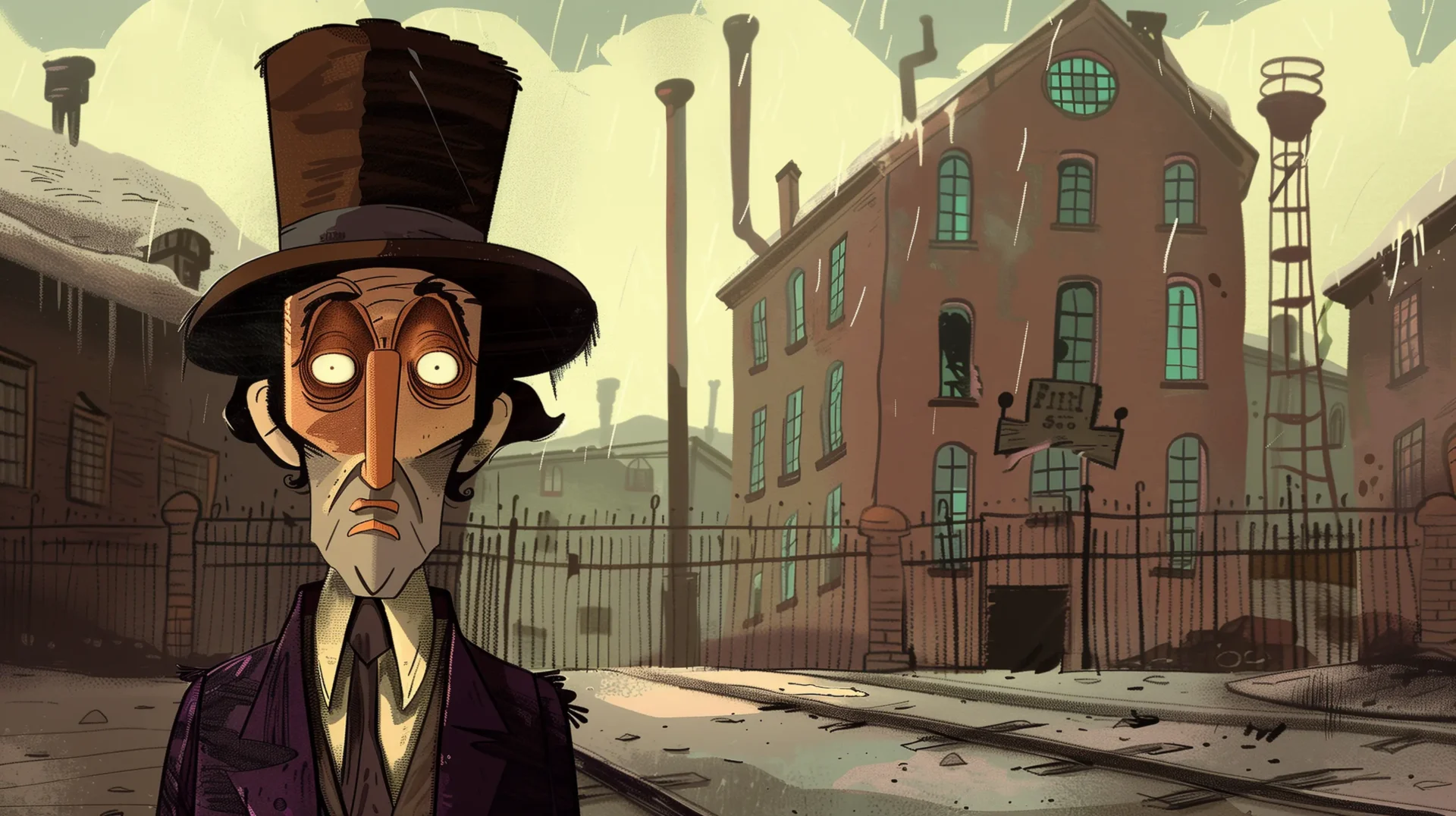
Willy's Chocolate Experience
It was 2024. A children’s event called “Willy’s Chocolate Experience” promised to whisk attendees away on a magical journey inspired by Roald Dahl’s beloved “Charlie and the Chocolate Factory.” Parents, eager to give their children an experience straight out of a cherished book, eagerly purchased tickets. However, what awaited them was a far cry from the promised land of flowing chocolate rivers and singing Oompa Loompas.
Instead, the Willy Wonka Chocolate Experience descended into a chaotic disappointment, leaving parents and children alike heartbroken and frustrated, ultimately culminating in police involvement and a viral disaster for the organisers. Even the staff admitted it was “heartbreaking” (Source)
A Dream Turned Sour: The Unfulfilled Promises of Willy’s Chocolate Experience
The event, held in an unremarkable warehouse, lacked the vibrant, fantastical atmosphere promised in its marketing materials. Gone were the chocolate fountains, whimsical costumes, and interactive activities that were supposed to bring the world of Willy Wonka to life. Instead, attendees were greeted with sparse decorations, staff in poorly made costumes, and limited offerings that amounted to a few jelly beans and a cup of lemonade. Needless to say, this fell well short of the “chocolatey wonderland” experience advertised.
Disgruntled parents and attendees took to social media, sharing photos and expressing their outrage. Many complained of misleading advertising, a lack of promised features, and a disappointing experience for their children. The online backlash escalated quickly, drawing the attention of local authorities and further amplifying the event’s shortcomings. Eventually, amidst the negative publicity and public outcry, the event was shut down, and refunds were issued.
From Dream to Disaster: What Went Wrong?
While the Willy Wonka Chocolate Experience promised a fantastical world, the reality was far bleaker. Several crucial factors contributed to the event’s spectacular failure:
- Misuse of a copyrighted concept: Building an event around a well-known and beloved intellectual property like Willy Wonka comes with inherent expectations. The organisers failed to secure the necessary rights, potentially hindering their ability to deliver on the promised experience.
- Over-reliance on AI: The organisers reportedly utilised AI-generated scripts and marketing materials. While AI can be a helpful tool, it often lacks the nuance and human touch needed to create an engaging and authentic experience. This resulted in poorly written content and a lack of understanding of the emotional connection people have to the source material.
- Lack of expertise: Launching a successful event requires a team with diverse expertise in event activation, experience design, marketing, and copywriting. The Willy Wonka Chocolate Experience appeared to lack this expertise, leading to shortcomings in planning, execution, and communication.
- Unrealistic expectations and misleading marketing: The event’s marketing materials promised a grand, immersive experience. However, the organisers did not realistically assess their ability to deliver on those promises. This disconnect between advertised experience and delivered reality fuelled the widespread disappointment and anger.
Lessons Learned: Avoiding a Willy Wonka-sized Disaster
The Willy Wonka Chocolate Experience serves as a cautionary tale for anyone planning an event. To avoid a similar fate, here are some crucial lessons to consider:
- Start with the end in mind: Before embarking on any event, clearly define the experience you can realistically deliver. Don’t over-promise on features or create unrealistic expectations.
- Find the right theme: Choose a theme that aligns with your resources and capabilities. If you cannot offer a large-scale spectacle, focus on creating a smaller, personalised experience that offers attendees value and a connection to the theme.
- Assemble a team of experts: Surround yourself with professionals with the experience and skills necessary to plan, execute, and market your event effectively. This includes expertise in event activation, experience design, marketing, and copywriting.
- Prioritise human input: While AI can be an asset, it should not replace human creativity and expertise. Relying solely on AI for key aspects like marketing materials can lead to errors and a lack of emotional connection with the target audience.
- Transparency and communication: Be upfront and honest about what your event offers. Clearly communicate the experience attendees can expect, avoiding misleading or exaggerated claims.
- Budget for Success: Creating a realistic and detailed budget is crucial for event planning. This involves carefully considering all potential expenses, from venue rental and staffing to equipment and marketing.
The Willy Wonka Chocolate Experience stands as a stark reminder of the importance of careful planning, realistic expectations, and responsible marketing. By learning from its shortcomings, event organisers can strive to create genuine and memorable experiences that fulfil the promises made and leave a lasting positive impression on their audiences.